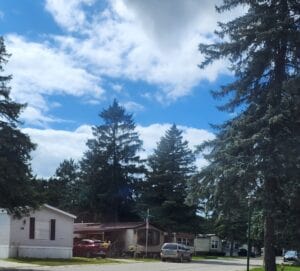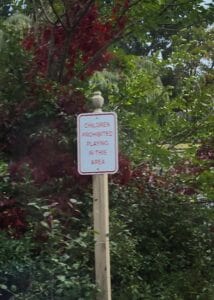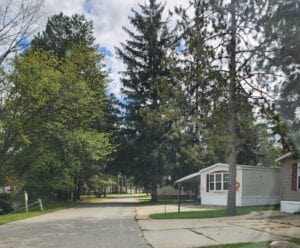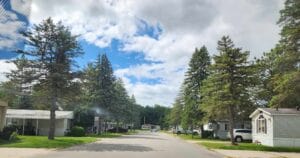Are you struggling to navigate the complex world of mobile home park regulations? Understanding mobile home park regulations is crucial for both current and prospective residents. These regulations have a significant impact on your experience and rights as a resident, making it essential to grasp their implications.

We’ll explore various topics, including tenant rights, park maintenance standards, rent control policies, and more. By gaining a comprehensive understanding of these regulations, you’ll be equipped with the knowledge needed to protect yourself and make informed decisions regarding mobile home living.
So, if you’re ready to unravel the complexities of mobile home park regulations and empower yourself as a resident, let’s dive right in!
Essential Mobile Home Park Regulations and Laws
Mobile home parks are subject to various regulations and laws at different levels of government. These rules and regulations play a crucial role in ensuring the safety, well-being, and fair treatment of residents. Understanding these regulations is essential for both park owners and residents alike.
Different levels of government involved in regulating mobile home parks
Regulating mobile home parks involves multiple levels of government, including federal, state, and local authorities. Each level has its own set of regulations that address different aspects of park management.
At the federal level, the Department of Housing and Urban Development (HUD) oversees certain aspects related to manufactured housing standards. They establish guidelines for construction, installation, energy efficiency, fire safety, and more.
State Governments: Essential Mobile Home Park Regulations
State governments also play a significant role in regulating mobile home parks. They have the authority to create laws specific to their jurisdiction regarding zoning requirements, licensing procedures for park operators, health and safety standards, tenant rights protection, rent control policies, eviction procedures, and dispute resolution mechanisms.
Local governments further refine these regulations by implementing ordinances that cater to the unique needs of their communities. These ordinances may cover issues such as setback requirements between homes or common areas within the park.
Common types of regulations and laws governing mobile home parks
Mobile home park regulations encompass various areas to ensure proper management and protect the interests of both residents and owners. Some common types include:
Zoning Regulations: Local governments establish zoning ordinances that determine where mobile home parks can be located within their jurisdiction. This helps maintain a balance between residential areas and other land uses while considering factors like access to amenities and transportation.
Licensing Requirements: States often require mobile home park operators to obtain licenses or permits before operating their facilities. These licenses ensure compliance with health codes, safety standards, financial obligations towards residents’ security deposits or prepaid rent accounts.
Health & Safety Standards: Mobile home park regulations typically mandate adherence to health and safety standards. This may include requirements for clean water supply, proper sewage disposal, electrical safety, fire prevention measures, and regular inspections.
Tenant Rights Protection: Regulations are in place to safeguard the rights of mobile home park residents. These laws cover areas such as lease agreements, rent increases, eviction procedures, maintenance responsibilities of park owners, and the establishment of resident associations.
How these regulations protect the rights and interests of residents
Mobile home park regulations serve as a crucial safeguard for residents’ rights and interests. They provide a framework that ensures fair treatment by establishing guidelines for:
Rent Control: Some jurisdictions have rent control policies in place to prevent excessive or unfair rent increases.
Dispute Resolution: Regulations often outline procedures for resolving conflicts between park owners and residents through mediation or arbitration.
Maintenance Standards: Park owners are required to meet certain maintenance standards to ensure the habitability of homes within the community.
Eviction Procedures: Regulations establish lawful grounds for eviction while protecting tenants from unjust removals.
Transparency: Mobile home park regulations often require clear disclosure of fees, rules, and policies before entering into a lease agreement.
By understanding these regulations, both mobile home park owners and residents can navigate their responsibilities and rights more effectively. Compliance with these rules promotes harmonious living environments that prioritize safety, fairness, and mutual respect among all parties involved.

Rights and Responsibilities of Mobile Home Park Residents: Essential Mobile Home Park Regulations
Mobile home park residents have certain rights and responsibilities that they should be aware of in order to maintain a harmonious living environment. Understanding these rights and fulfilling the corresponding responsibilities is essential for a thriving community. Let’s delve into the basic rights guaranteed to mobile home park residents and the responsibilities they have towards their community and neighbors.
Basic Rights Guaranteed to Mobile Home Park Residents: Essential Mobile Home Park Regulations
As a park resident, you are entitled to specific rights that protect your interests and ensure fair treatment within the community. These rights include:
Right to peaceful enjoyment: You have the right to peacefully enjoy your mobile home without interference from other residents or management.
Right to privacy: Your mobile home is your personal space, and you have the right to privacy within it.
Right to due process: If any issues arise that may affect your tenancy, such as eviction or rent increases, you have the right to proper notice and an opportunity for a fair hearing.
Right to non-discrimination: It is illegal for park management or fellow residents to discriminate against you based on factors such as race, religion, gender, or disability.
Responsibilities That Residents Have Towards Their Community and Neighbors
While enjoying their rights, mobile home park residents also bear certain responsibilities towards their community and neighbors. These responsibilities help foster a sense of unity and cooperation among residents:
Respecting park property: As a resident, it is crucial to respect common areas within the park by keeping them clean and well-maintained.
Maintaining your mobile home: Regular upkeep of your mobile home not only ensures its longevity but also contributes positively to the overall appearance of the community.
Adhering to rules and regulations: Familiarize yourself with the rules set forth by park management regarding noise levels, pet policies, parking regulations, etc., and make sure to abide by them.
Being a considerate neighbor: Show respect and consideration towards your neighbors by keeping noise levels reasonable, properly disposing of trash, and being mindful of shared spaces such as driveways.
How to Exercise Your Rights While Fulfilling Your Responsibilities as a Resident
Exercising your rights while fulfilling your responsibilities is crucial for maintaining a harmonious living environment. Here are some tips on how to strike the right balance:
Know and understand the park’s rules: Familiarize yourself with all the rules and regulations set forth by park management. This will help you navigate any potential conflicts or issues that may arise.
Open communication: Establish open lines of communication with both park management and your fellow residents. This can help address concerns or resolve conflicts in a respectful manner.
Participate in community activities: Engaging in community activities not only fosters a sense of belonging but also provides an opportunity to voice concerns or suggestions for improvement.
Stay informed: Keep yourself updated on any changes in park regulations or policies that may affect your rights or responsibilities.
By understanding your rights as a mobile home park resident and fulfilling your corresponding responsibilities, you contribute to the overall well-being of the community while enjoying a peaceful living environment.
Remember, being aware of these rights and responsibilities is essential for fostering a thriving mobile home park community where everyone feels valued and respected.

Standards and Guidelines for Essential Mobile Home Park Regulations
Mobile home parks, also known as manufactured housing parks or special occupancy parks, are subject to specific regulations and guidelines to ensure the well-being of residents and the overall functionality of the community. These standards cover various aspects, including infrastructure, utilities, amenities, cleanliness, safety, and aesthetics. Inspections play a crucial role in ensuring compliance with these regulations.
Minimum Standards for Infrastructure, Utilities, and Amenities in Mobile Home Parks
To provide a safe and comfortable living environment for residents, mobile home parks must adhere to minimum standards regarding their infrastructure, utilities, and amenities. These standards typically include:
Roads and Access: The park should have well-maintained roads that allow easy access to all homes within the community. Proper signage and clearly marked parking areas are also essential.
Water Supply: A reliable water supply system is necessary to meet the needs of all residents. Regular testing should be conducted to ensure water quality meets health standards.
Sewage Disposal: Adequate sewage disposal systems must be in place to prevent contamination and maintain sanitation levels within the park.
Electricity: All homes should have access to a safe electrical connection that meets local building codes.
Fire Safety: Fire prevention measures such as fire hydrants, extinguishers, smoke detectors, and clear evacuation routes need to be implemented throughout the park.
Recreational Facilities: Mobile home parks often provide recreational facilities such as playgrounds or community centers for residents’ enjoyment. These areas should be properly maintained for safety purposes.
Guidelines for Maintaining Cleanliness, Safety, and Aesthetics within the Community
In addition to meeting minimum infrastructure requirements, mobile home parks must also follow guidelines related to cleanliness, safety measures, and aesthetics:
Landscaping: Well-kept landscaping enhances the visual appeal of a mobile home park. Guidelines may include maintaining lawns, trimming trees and shrubs, and implementing an architectural review approval process for any modifications to the exterior of homes.
Trash Disposal: Proper waste management procedures should be in place, including designated trash collection areas and regular pickups.
Community Rules: Mobile home parks often have specific rules that residents must follow to maintain a harmonious community. These rules may cover noise restrictions, pet policies, parking regulations, and more.
Safety Measures: Parks should prioritize safety by enforcing speed limits, installing adequate lighting throughout the premises, and promoting crime prevention initiatives.
The Role of Inspections in Ensuring Compliance with These Standards
Regular inspections play a vital role in ensuring that mobile home parks comply with established standards and guidelines. These inspections are typically conducted by local authorities or regulatory agencies to assess various aspects of the park’s infrastructure, amenities, cleanliness, safety measures, and adherence to regulations.
Inspections help identify any areas where improvements or corrective actions are needed within the park. They also serve as an opportunity for residents to voice concerns or raise issues related to their living conditions.
By having comprehensive standards and guidelines in place along with regular inspections, mobile home parks can provide a safe and comfortable environment for residents while maintaining a visually appealing community that meets all necessary regulations.
Legal Aid and Resources for Mobile Home Park Tenants
Organizations providing legal aid services to mobile home park tenants
It is crucial for tenants to be aware of the organizations that provide legal aid services. These organizations are dedicated to assisting tenants in navigating the complex world of housing laws and ensuring they have access to justice.
One such organization is the Mobile Home Advocacy Project (MHAP), which specializes in offering legal assistance to mobile home park tenants. MHAP provides free or low-cost legal representation, advice, and resources to help tenants understand their rights under the law. They work diligently to protect tenant interests and promote fair treatment within the community.
Another notable organization is the National Consumer Law Center (NCLC). While not exclusive to mobile home park tenants, NCLC offers valuable resources and expertise on consumer protection laws that can be applied in various housing situations. They publish comprehensive guides and engage in advocacy efforts aimed at improving tenant rights nationwide.
Resources available to help tenants understand their rights under the law
Understanding one’s rights as a tenant is essential when residing in a mobile home park. Fortunately, there are numerous resources available that can assist individuals in comprehending these rights and how they apply within the context of specific regulations.

Online platforms like Legal Aid Websites provide comprehensive information on tenant rights, including those specific to mobile home parks. These websites offer articles, FAQs, and downloadable guides that explain various aspects of housing law. They often include contact information for local legal aid organizations where individuals can seek further assistance.
Local government agencies also play a vital role in providing resources for mobile home park tenants. Housing departments or agencies may offer brochures or handbooks detailing relevant regulations pertaining to homes within their jurisdiction. These materials typically outline key provisions related to issues such as storage sheds, yard maintenance responsibilities, lot number allocation, and notice periods for eviction or rent increases.
Legal Assistance in Mobile Home Parks
In the unfortunate event that mobile home park tenants encounter issues with their landlords or face disputes, it is crucial to know how to access legal assistance promptly. Here are some steps tenants can take:
Contact local legal aid organizations: Reach out to organizations like MHAP or other local groups specializing in tenant rights. They can provide guidance and potentially offer representation if needed.
Consult an attorney: If the issue is particularly complex or requires immediate attention, seeking advice from a qualified attorney is advisable. Attorneys experienced in housing law can provide tailored advice based on individual circumstances.
Document everything: Keep detailed records of all interactions with the landlord, including written correspondence, photographs, and any relevant documents. This documentation will be invaluable should a legal dispute arise.
Seek mediation services: In certain cases, mediation may be a viable option for resolving conflicts between tenants and landlords without resorting to costly litigation. Mediators act as neutral third parties who facilitate discussions and help find mutually agreeable solutions.
By familiarizing themselves with available resources and knowing how to access legal assistance when needed, mobile home park tenants can better protect their rights within their community.
Park Regulations: Remember
Remember, understanding mobile home park regulations is essential for maintaining harmony between tenants and landlords while ensuring everyone’s rights are respected under the law.
Eviction Prevention Services and Conflict Resolution Methods: Essential Mobile Home Park Regulations
Eviction prevention programs play a crucial role in assisting at-risk tenants, ensuring that they can maintain stable housing. These services are designed to provide support for individuals facing financial hardships or other challenges that may put them at risk of eviction. By offering welfare assistance, financial counseling, and access to community resources, these programs aim to help tenants overcome obstacles and retain their homes.
Resolving conflicts between residents or with management/landlords is another essential aspect of maintaining harmony within mobile home parks. Conflicts can arise due to various reasons such as noise complaints, property maintenance issues, or disagreements over park regulations. Effective conflict resolution methods are necessary to address these disputes promptly and fairly.
Preventing Conflicts From Escalating
To prevent conflicts from escalating, effective communication is key. Tenants should be encouraged to express their concerns openly while remaining respectful towards others. Here are some tips for fostering effective communication:
Active Listening: Encourage residents to actively listen and understand each other’s perspectives before responding. This helps create an atmosphere of mutual respect and empathy.
Open Dialogue: Encourage open dialogue between residents and management/landlords by providing channels for constructive feedback and suggestions.
Mediation Services: Implement mediation services where a neutral third party can facilitate discussions between conflicting parties to find mutually agreeable solutions.
Clear Communication Channels: Ensure that there are clear lines of communication available for residents to report issues or seek assistance easily.
Regular Community Meetings: Organize regular community meetings where residents can voice their concerns collectively and work together towards resolving common challenges.
In addition to effective communication strategies, it is important for mobile home park regulations to be clearly defined and accessible to all residents. This helps minimize misunderstandings and potential conflicts arising from differing interpretations of the rules.
Review Your Essential Mobile Home Park Regulations
Mobile home park regulations typically cover various aspects such as maintenance responsibilities, utility usage guidelines, fencing requirements, shed installation rules, violation fees, and care provider accommodations. By clearly outlining these regulations, residents can have a better understanding of their rights and responsibilities within the community.
For instance, rules regarding shed installation might specify the maximum height allowed, materials permitted (such as cedar), and any necessary permits or inspections. Similarly, guidelines for care providers may outline the documentation required to prove their status and the number of days they are allowed to stay on-site.
By providing comprehensive information on park regulations, residents can navigate the rules more easily, reducing the likelihood of unintentional violations and subsequent conflicts.
Policies, Lease Agreements, and Ownership Considerations
Lease agreements play a vital role in mobile home parks, outlining the rights and responsibilities of both tenants and park owners. Before purchasing or renting a mobile home within a park, it is crucial to understand the key policies commonly found in lease agreements and consider various ownership considerations.
Key policies commonly found in lease agreements for mobile homes
When reviewing a lease agreement for a mobile home park, several essential policies are typically outlined:
Rent: The agreement specifies the amount of rent to be paid by tenants and the frequency of payment.
Property maintenance: It outlines the responsibilities of both tenants and park owners regarding property upkeep, such as maintaining lawns, gardens, and common areas.
Vehicles: Mobile home parks often have regulations regarding vehicle parking, including designated areas or restrictions on certain types of vehicles.
Pets: Lease agreements may address pet policies, including restrictions on breeds or sizes allowed within the park.
Fences and alterations: Some parks have guidelines regarding fences or other alterations that tenants may want to make to their properties.
Changes in ownership: The agreement may outline procedures for transferring ownership when selling or subletting a mobile home.
By understanding these key policies before signing a lease agreement, potential issues can be identified early on.
Factors to Consider When Purchasing or Renting a Mobile Home Within a Park
Before committing to living in a specific mobile home park, there are several factors that prospective buyers or renters should consider:
Management reputation: Researching the reputation of the park owner or management company is essential to ensure fair treatment and prompt resolution of any concerns.
Ownership rights: Understanding who holds legal ownership over the land beneath your mobile home is crucial as it impacts your long-term security as an occupant.
Fees and additional costs: In addition to rent, there may be additional fees for amenities or services provided by the park. These should be considered when budgeting for housing expenses.
Written permission: Some parks require written permission from the owner or management before making significant changes to the property, such as adding a structure or modifying landscaping.
Future plans and development: Researching any potential future plans or developments in the mobile home park can help avoid surprises down the line.
Considering these factors allows individuals to make informed decisions about their mobile home park selection.
The Importance of Reviewing Lease Agreements Before Signing
Reviewing lease agreements thoroughly is crucial before signing any legal document. This importance is magnified due to the unique nature of living in a shared community.

Key Takeaways on Essential Mobile Home Park Regulations
We discussed the standards and guidelines that govern mobile home parks, as well as the legal aid and resources available to tenants. We delved into eviction prevention services and conflict resolution methods that can help you navigate any challenges that may arise.
Now that you have a solid understanding of mobile home park regulations, it’s time to take action. If you’re currently living in a mobile home park or considering moving into one, make sure to familiarize yourself with the specific policies, lease agreements, and ownership considerations unique to your situation. Stay informed about your rights as a tenant and be proactive in seeking legal assistance or mediation if needed. Remember, knowledge is power.
FAQs: Essential Mobile Home Park Regulations
Can a mobile home park change its rules after I move in?
Yes, but any changes made must comply with local laws and regulations. The park management should provide notice of any rule changes within a reasonable timeframe.
What happens if my landlord fails to maintain the mobile home park?
If your landlord neglects their responsibilities for maintaining the park’s infrastructure or providing essential services like water or electricity, you may have legal recourse. Contact local housing authorities or seek legal advice for guidance on how to address such issues.
Are there restrictions on selling or moving my mobile home from one park to another?
Some parks may have restrictions on selling or moving your mobile home. It’s important to review your lease agreement or consult with management before making any plans.
How can I resolve conflicts with my neighbors in the mobile home park?
Open communication is key when resolving conflicts with neighbors. Try discussing any issues directly with them first. If that doesn’t work, consider involving mediators or the park management to help find a resolution.
Can I make improvements or modifications to my mobile home?
Generally, you can make improvements or modifications to your mobile home as long as they comply with local building codes and regulations. However, it’s advisable to consult with park management before making any significant changes.
You might also be interested in our articles:
Donate Your Mobile Home: Easy Steps to Make a Difference
Mobile Home Floor Vents: Deluxe Metal Registers for Efficient Airflow
Obtaining Title for Abandoned Mobile Home: Step-by-Step Guide

